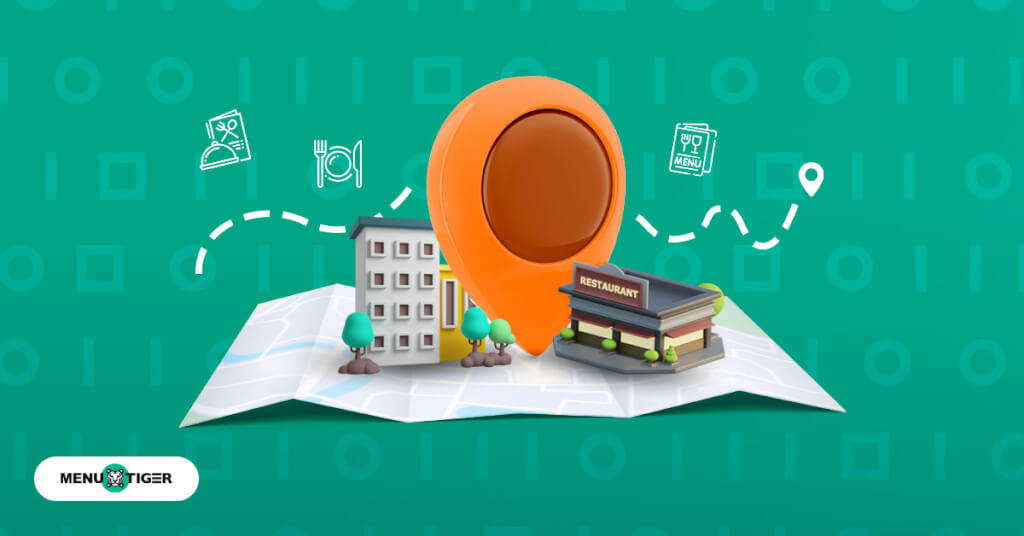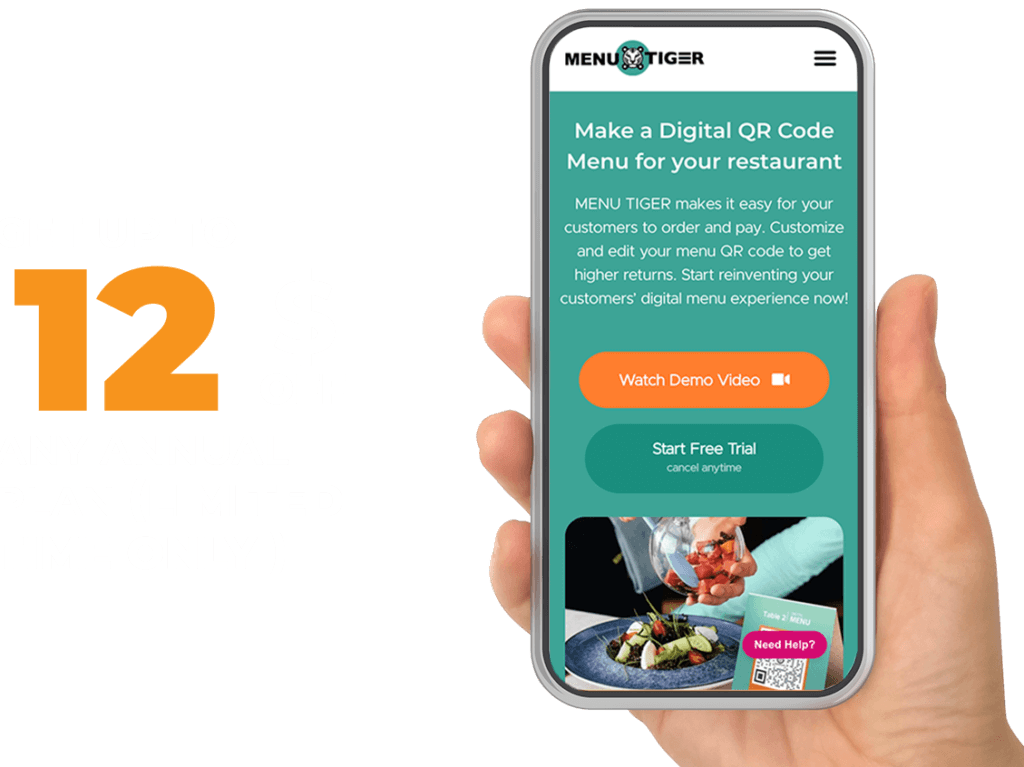When opening a business, especially a restaurant, knowing how to choose the restaurant location is essential to your success. As with any business, don’t waste a good product or service by not doing your research before launch.
The sad reality is that around 60% of restaurants fail in their first year, according to the National Restaurant Association, while 80% fail within five years after opening.
Of course, many factors may contribute to a restaurant’s closure, but always keep in mind how crucial it is to find a good location for your restaurant.
The study by the National Restaurant Association also cited that 22% of restaurants mentioned location as the main reason they failed.
While you may already have a concept or theme in mind for your restaurant and the kind of food you will be serving, consider the restaurant’s location seriously.
Once you’ve figured that out, you must also consider other important factors to guarantee your restaurant’s success.
Should you invest in manual labor to run your business, or is it high time you integrate digital tools like food delivery collaborations, QR code menus, and POS systems? Learn all these and more in this article.
Table of Contents
ToggleWhy do you have to know how to choose restaurant locations?
Selecting the right location for your restaurants is like picking the perfect stage for a performance—it helps you get the spotlight and direct the attention of your target audience toward you.

But you must also realize that not every prominent location is right for your restaurant. You need to consider some factors that will help you gauge which area is the best suited for the type of service and food you are going to offer.
Once you have spotted the best area to place your business, that’s when you’ll be able to see results.
The right restaurant location directly influences your visibility, customer base, competition, costs, and overall brand image.
After establishing the perfect spot, you’ll need to work on the strategies to keep your customers coming back for more. This will help you steer away from being part of the restaurant failure rate statistics.
7 factors to consider in choosing the best location for a restaurant business
Here are some key factors that you should take note of:
Your target demographic
If you are opening a boba tea shop, your target demographic would be those who enjoy sweet drinks, those who like to have drinks on the go, people who like tea, people who are familiar with boba tea, and those who want quick, tasty snacks.
Keeping these in mind, as well as your planned store size/space and your product’s price points, you can narrow down the ideal restaurant location for your business.

If you plan to put up a small store or a food truck, a location with heavy foot traffic would be a great option, like a shopping district or an entertainment area.
Such areas will have a great mix of people who love diverse food offerings, like a refreshing drink or a quick snack they can enjoy on the go. You might also want to look for profitable food truck menu ideas.
If you want to know how to choose the restaurant location for a smoothie bar, your target demographic would be more health-conscious individuals like vegetarians, fitness enthusiasts, and parents.
Unlike the boba tea shop, opening a smoothie bar near fitness centers, hospitals, wellness centers, and specialty groceries would make more sense.
Consider your target demographic’s “psychographics.” This will help you determine their “motivations” for buying something and, in your case, why they would buy your product.
Consider these questions in determining the psychographics of your target demographic:
- Why would families want to frequent your boba tea shop?
- Why would vegetarians choose to hang out and eat at your smoothie bar?
Try to come up with more questions to narrow down your would-be customers’ needs and wants so you can satisfy these as you plan where to put up a restaurant.
Your desired space
The size of your restaurant’s space would also be a consideration when looking for the right location.
Even if the locations you are interested in have high foot traffic or are frequented by your target demographic, if the available space does not meet your restaurant requirements, you have to think it through—Is the available space something you can work with or not?
If you feel it will negatively affect how you operate your business and serve your customers, do not force it. Be patient and make sure your business is set up at the right location for restaurant success.
Visibility
This is highly important for new restaurants as you are still building familiarity with your target customers. Of course, this only applies if your restaurant aims to be exclusive.

But for those who wish to have a broad audience reach, consider a location that’s easily accessible, safe, and with a lot of foot traffic.
It’s important that the people passing by your restaurant are not always in a rush, looking down on their phones, or scared of their surroundings.
Make sure that there are also no buildings or other properties “blocking” your restaurant so that those driving by can easily spot it so they can consider it the next time they pass by.
It would be best to visit your new restaurant’s possible locations to see what kind of people pass by the area and their typical behavior.
Here’s a guide to opening a restaurant with maximized visibility: A location near offices is a great idea, but if these are offices where employees are always rushing and looking at their phones, they might not notice your restaurant nor have time to come in and enjoy a meal.
For such locations, you might be better off opening a business that caters to mostly takeouts.
Consider parking spaces, as many customers would rather drive away to a different restaurant than wait for a parking space—especially if they’re already hungry.
Ample parking space is also important for receiving deliveries from your suppliers or for your company vehicles. Another thing to consider is adding a bike rack if your restaurant location has a lot of people biking around.
Rental cost of location for restaurants
Another major factor to consider is how much the rental space would cost. Is it within the budget you’ve set? Do you think you will still be able to make a profit despite the cost of the location? Do note that the cost of the rental space you’re eyeing should not exceed 10% of your revenue.
Opening a restaurant can be challenging and exciting. Make sure to mitigate possible risks by being mindful of your planning.
Other establishments
Regardless if it’s your competition or not, you should also consider the other businesses that have set up shop in the area.
If you’re opening a self service ordering restaurant, it’s best not to open next to fine dining restaurants.
If you’re opening a steakhouse, it’s best not to open next to a vegan restaurant or if there are already three other steakhouses in the area.
The problem with the latter is that these restaurants would be similar to yours, but they would likely already have a loyal following.
Moreover, it’s also important to note the services and amenities they offer. Do they have multiple payment options? Are they providing a printed and QR code menu at the same time? Or have they collaborated with food delivery services to maximize their customer base?
Knowing these details will help you understand which services and tools you’ll need to invest to compete with their offerings.
Zoning
Choosing a location for your restaurant would also require you to consider zoning laws seriously.
Ensure that you are eyeing a commercial area or a mixed-use space. If it is the latter, find out what is allowed and if the limitations would hurt or harm your business.
Your suppliers
Your vicinity to suppliers would help you save on logistics and give you better access to stocks your restaurant needs.
Nearby suppliers would also be the best option for acquiring the freshest ingredients. If you are going to open a salad bar, it’s an absolute must that you have easy access to the freshest produce.
As your restaurant gets busier, you must replenish your stocks more often.
Aside from freshness and quality, being close to your suppliers would make delivery fees or gas costs less expensive.
Managing your locations with an interactive restaurant menu software
Integrating digital tools into your restaurant business is a total game-changer, especially in today’s age. Not only does it streamline your internal operations, it also helps you manage your restaurant locations or stores.
If you are handling multiple restaurant branches, you need digital tools to help you manage all of that simultaneously. Doing that is hard if you rely on manual labor.
This is where interactive restaurant software comes into view.

MENU TIGER, one of the leading restaurant software today, allows you to integrate all your restaurant branches into a single software. This means that in a single account, you can supervise or manage your restaurant branches without having to visit each location personally.
You can add multiple users or admins to help you handle the business online. And you don’t need to download a menu app to make this work. MENU TIGER is accessible
So, after learning how to choose restaurant locations, you’ll need to know how to integrate this digital tool as well.
Here’s how:
1. Create an account with MENU TIGER
2. Choose the plan you will subscribe to
Adding multi-location restaurants requires you to pay for the service. But unlike other software online, MENU TIGER offers a more affordable range.
Regular plan ($38/month) allows you to manage 2 stores and can add up to 2 admins or users per store
Advanced plan ($89/month) allows you to manage 4 stores and can add up to 3 admins or users per store
Premium plan ($119/month) allows you to manage 5 stores and can add up to 4 admins or users per store
And although MENU TIGER does not offer a free mobile app for restaurant ordering, what’s great about it is that you can easily access it online. Plus, there is no need for your customers to download an app to make and pay for their orders.
3. Set up your restaurant branches

4. Customize your QR code menu for each location

5. Add the number of tables for each store

6. Add users or admins to assign for each restaurant

Know how to choose restaurant locations and manage them with MENU TIGER today
You’ll need extensive research before opening your restaurant. Of course, it’s tedious work, but securing that your chosen location aligns with your restaurant goals and strategies is key to culinary success.
Think of it as a cornerstone of your restaurant. Location is one of the most basic things to consider when starting up because this will boost your foot traffic and profitability. It can even help with restaurant branding and your marketing strategies.
Once you’re done strategizing and if you already know how to choose the restaurant location, tap into MENU TIGER, a digital restaurant menu QR code software that help you manage your restaurant.

FAQs
By determining factors such as your target demographic, desired space, visibility, competitors, suppliers, zoning laws, and current rental cost, you will be able to spot the most suitable location for your restaurant.
The perfect location for your restaurant business depends on your service and target market. For quick service restaurants (QSR), opt for the area with many workers or students on the go. On the other hand, fine dining restaurants require you to choose a premium-class location to reach the accurate market.
Knowing how to choose the best restaurant location enables you to maximize your profitability and customer base.





